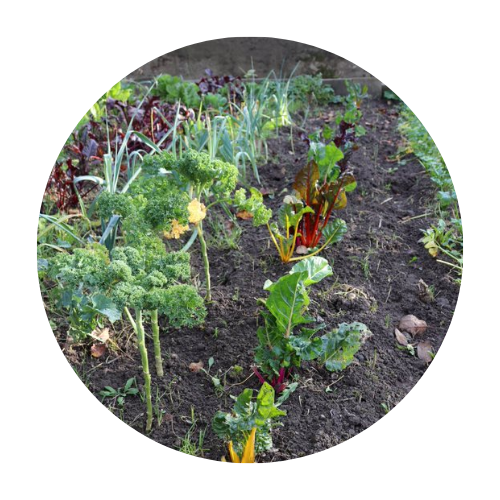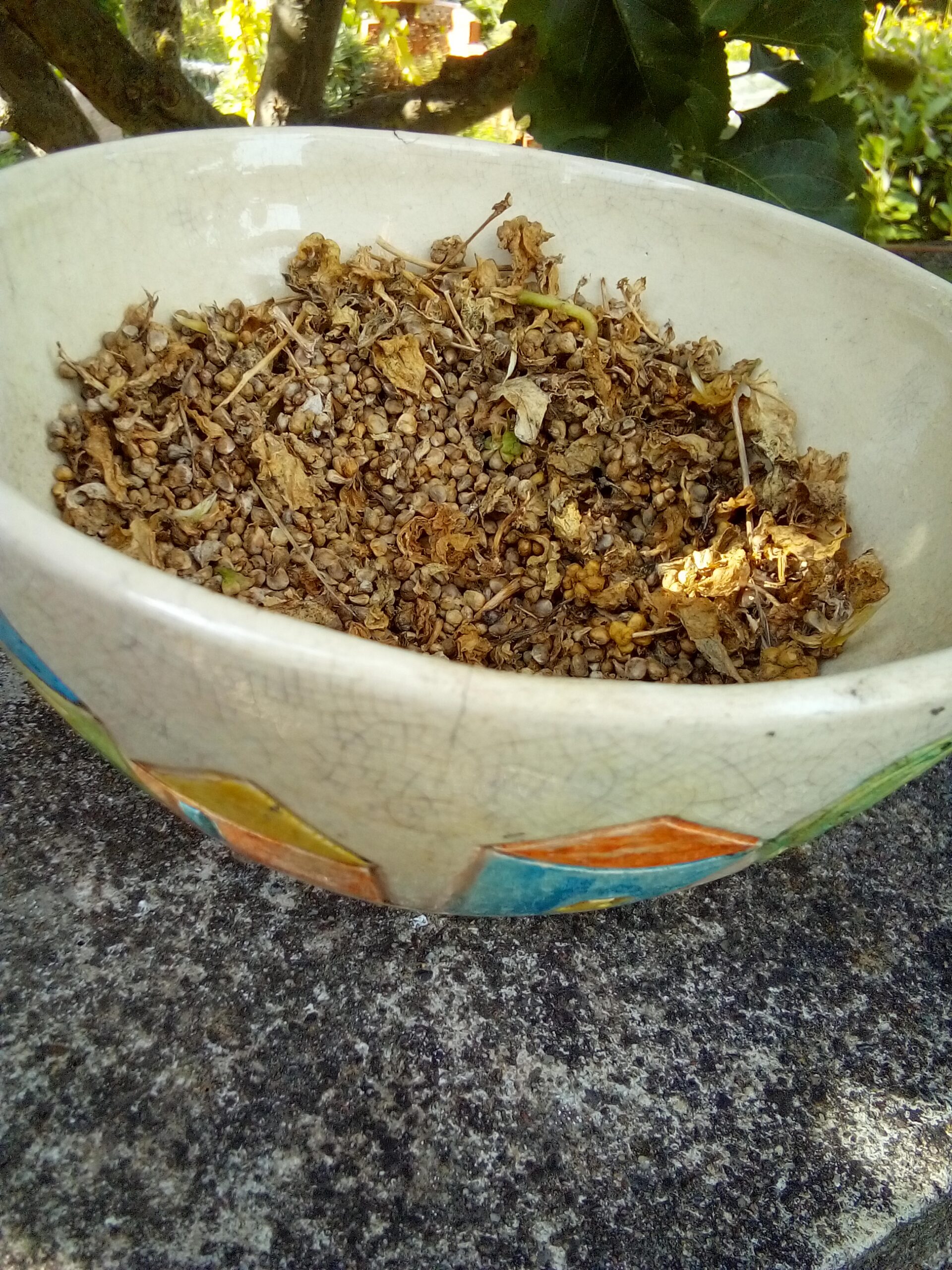When I began searching for open-pollinated seeds Germany, I was surprised how many local options existed for gardeners like me — simple, organic, and true to nature. Frida used to say, “A real seed remembers its roots.” And that’s exactly what samenfestes Saatgut is about: saving, sharing, and planting again.
Frida used to say, “A true seed carries memory. It remembers the soil it came from.”
That’s why I now choose open-pollinated seeds — they can be saved, shared, and planted again. In this post, I’ll show you where to buy high-quality samenfestes Saatgut in Germany, how to recognize it, and which shops I truly trust.
What Does “samenfest” Mean?
In English, samenfest means open-pollinated — plants that naturally reproduce, passing on their traits to the next generation. They’re the opposite of hybrids (F1), which are bred for one-time harvests and can’t be reliably saved.
Here’s why I love them:
- You can save seeds every season.
- They adapt to your local soil and microclimate.
- They attract pollinators and support biodiversity.
- They fit beautifully with a slow-living, sustainable garden lifestyle.
And maybe most importantly — they connect you to the rhythm of nature, not the rhythm of the market.
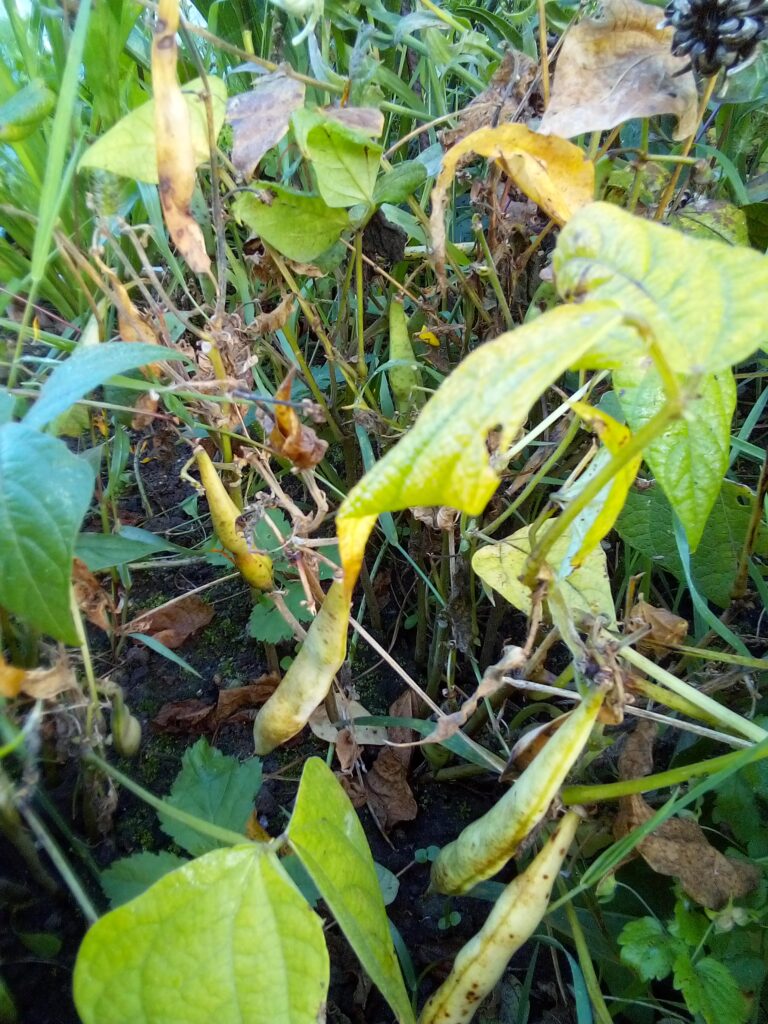

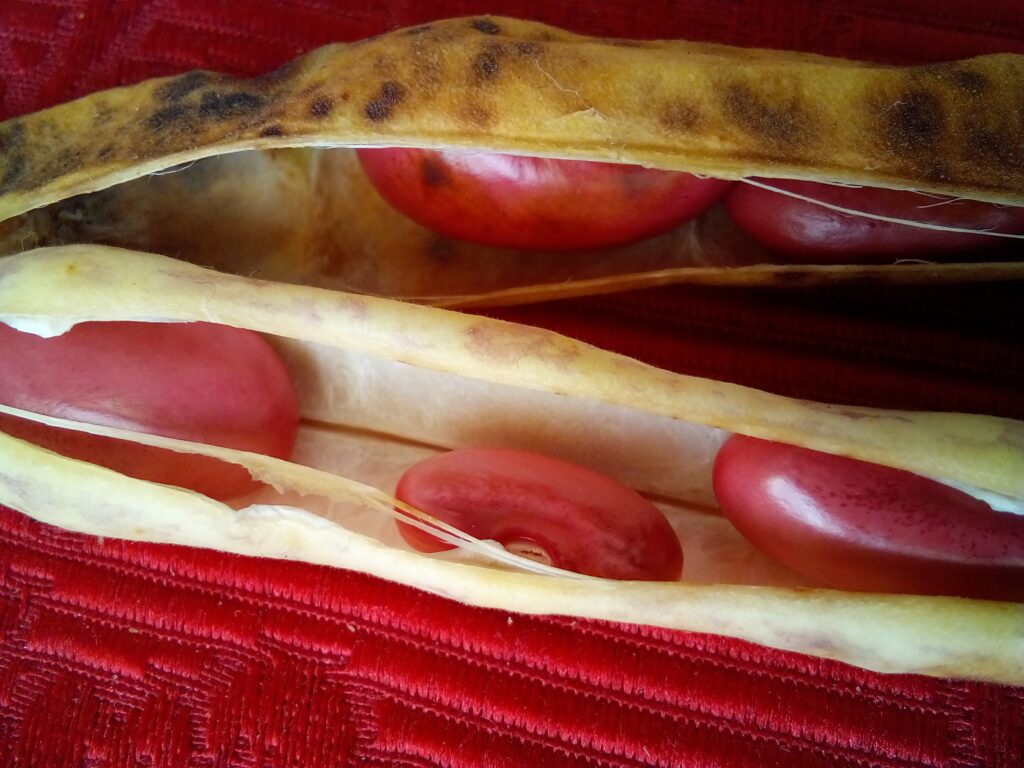
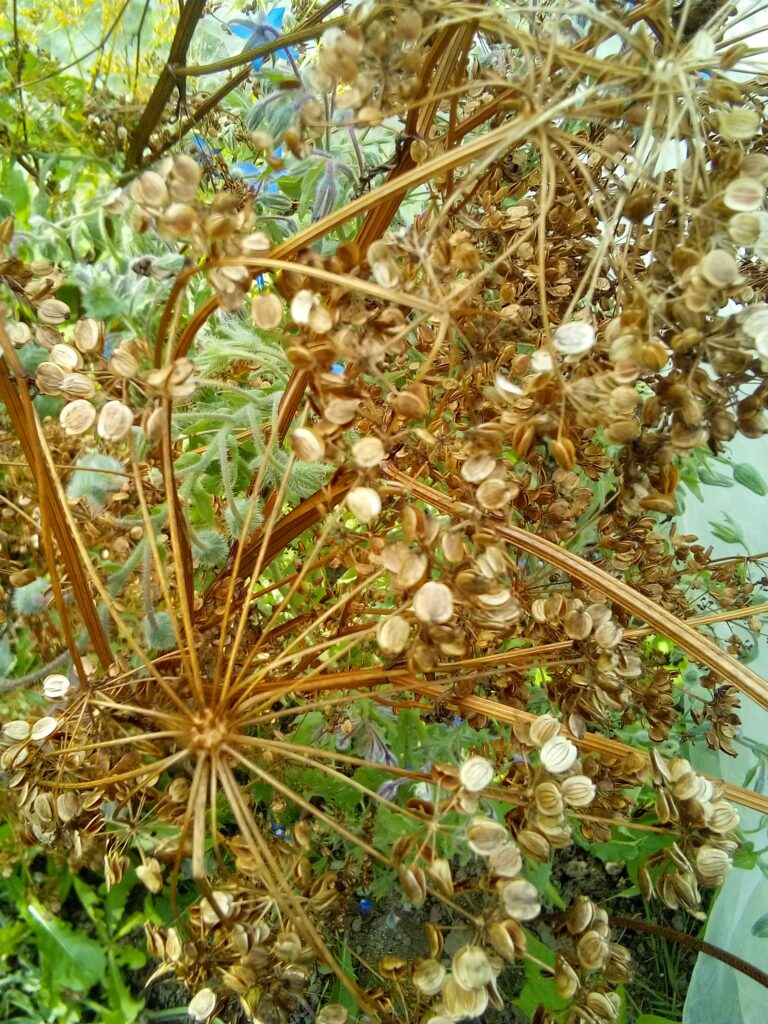
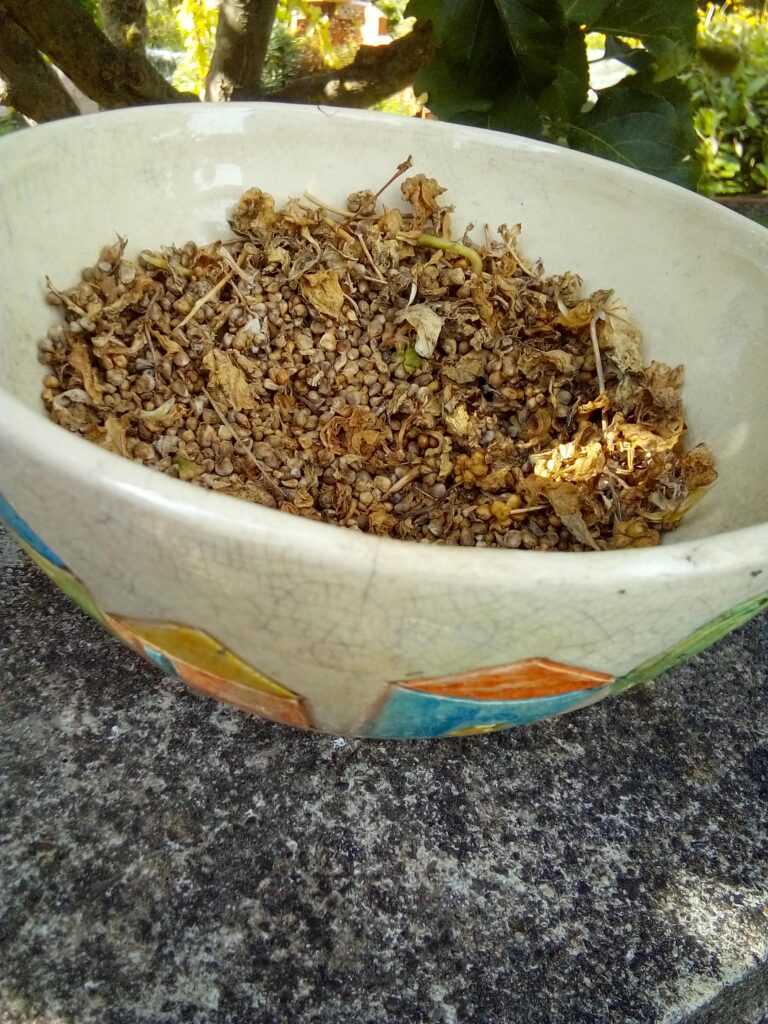
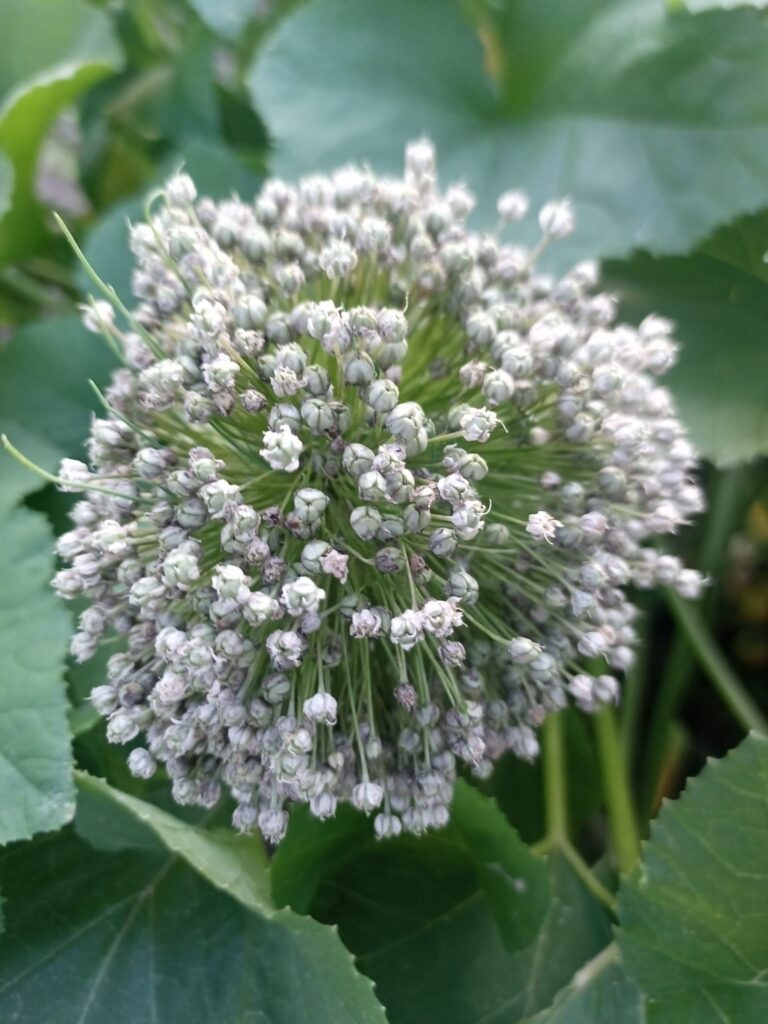
Where to Buy Open-Pollinated Seeds in Germany
Below are the German brands and seed sets I actually trust and use. All ship locally within Germany — no customs, no translation stress.
| Brand | Description | Amazon Recommendation |
|---|---|---|
| Bingenheimer Saatgut | Demeter-certified open-pollinated organic varieties; perfect for balcony or raised-bed gardening in Germany. | View Bingenheimer on Amazon.de |
| Magic Garden Seeds | Heirloom and rare plants; many open-pollinated herbs and vegetables with beautiful biodiversity. | View Magic Garden Seeds on Amazon.de |
| OwnGrown (Bio Herb Set) | Beginner-friendly open-pollinated herb kit for kitchen and balcony gardeners; includes basil, parsley, and dill. | View OwnGrown on Amazon.de |
| Little Plants (Bee Meadow Mix) | Wildflower mix supporting pollinators; simple, hardy, and ideal for slow-living balcony gardens. | View Little Plants on Amazon.de |
I’ve personally tried several of these seed brands over the past seasons, and each one taught me something new about patience, soil, and the quiet joy of tending plants. In the article above, I share more about my personal experience with open-pollinated seeds — the small victories, the surprises, and the lessons hidden in every sprout.
If you’re curious to go deeper, read my post on Why Choose Open-Pollinated Seeds for the full story behind these resilient varieties. Or, if you’re just getting started, here’s my Beginner Gardening Guide — a gentle, time-friendly roadmap to start growing with intention.
How to Recognize True Samenfest Seeds
Before buying:
- Look for “samenfest” or “open-pollinated” on the label.
- Avoid “F1 Hybrid.” That means you can’t save the seeds.
- Prefer Bio, Demeter, or EU-organic labels.
- Choose German-grown varieties — they’re adapted to local climate.
- Save your own seeds at season’s end and start a mini heritage garden.
Frida would smile and say, “The soil remembers kindness.” That’s exactly what open-pollinated seeds teach.
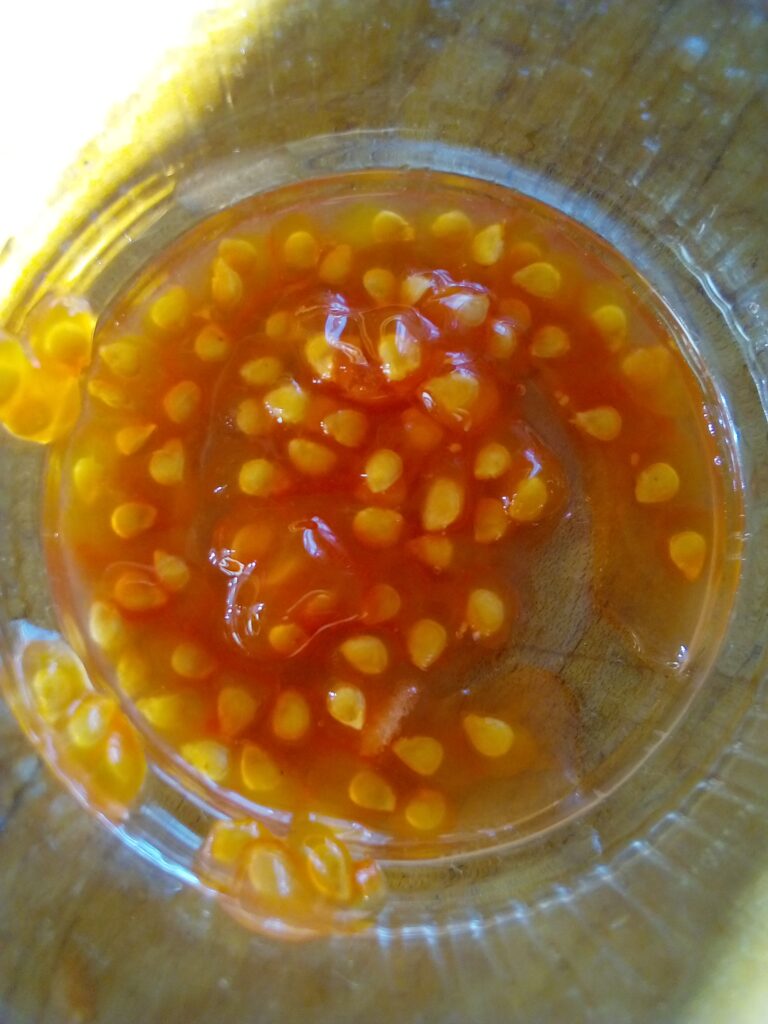

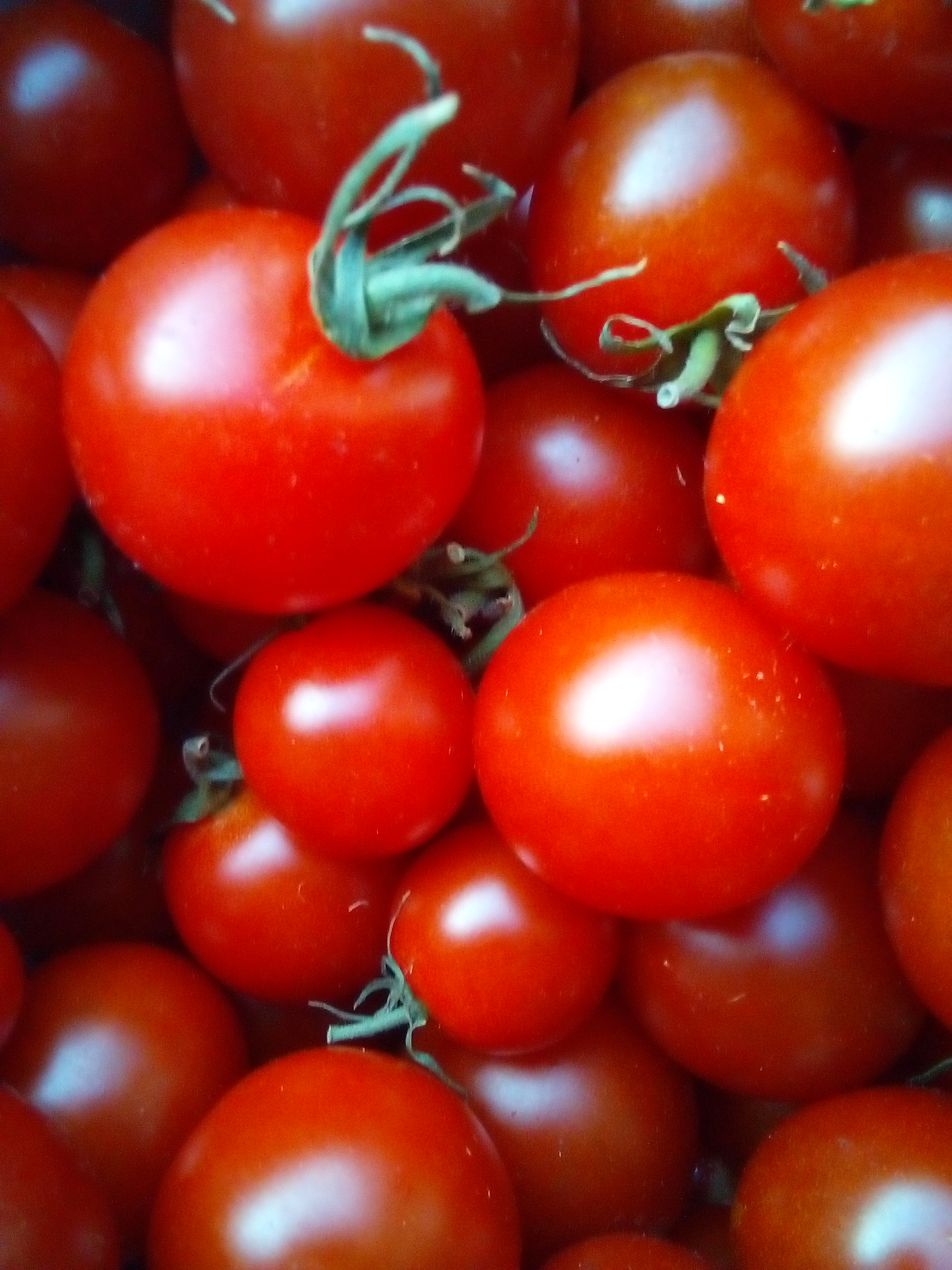
A Simple Seasonal Rhythm
Even with limited time (3–5 hours a week), you can grow plenty:
- February–March: Start tomatoes and herbs indoors.
- April–May: Transplant to balcony or garden.
- Summer: Harvest and observe which plants thrive.
- Autumn: Collect and label seeds for next year (a handful of seed envelopes keeps everything organized — such a sweet, space-saving trick from Amazon.com)
- .
Optional Ritual: Sow leafy plants under a waxing moon, roots under a waning moon — Frida’s old lunar wisdom never fails.
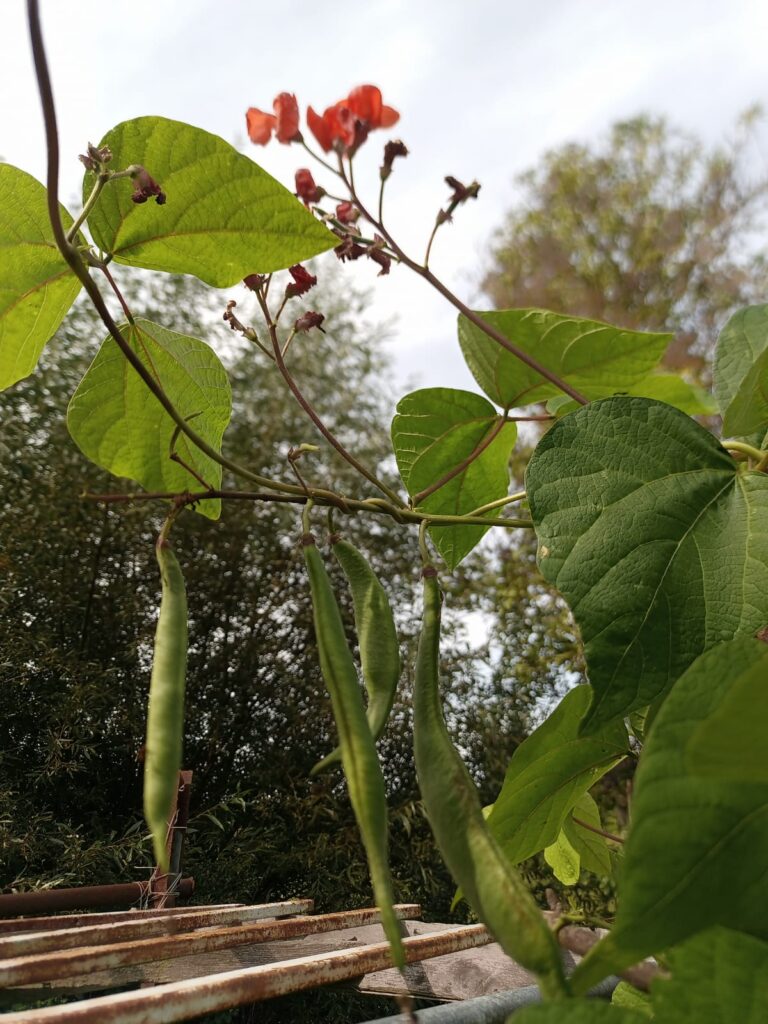

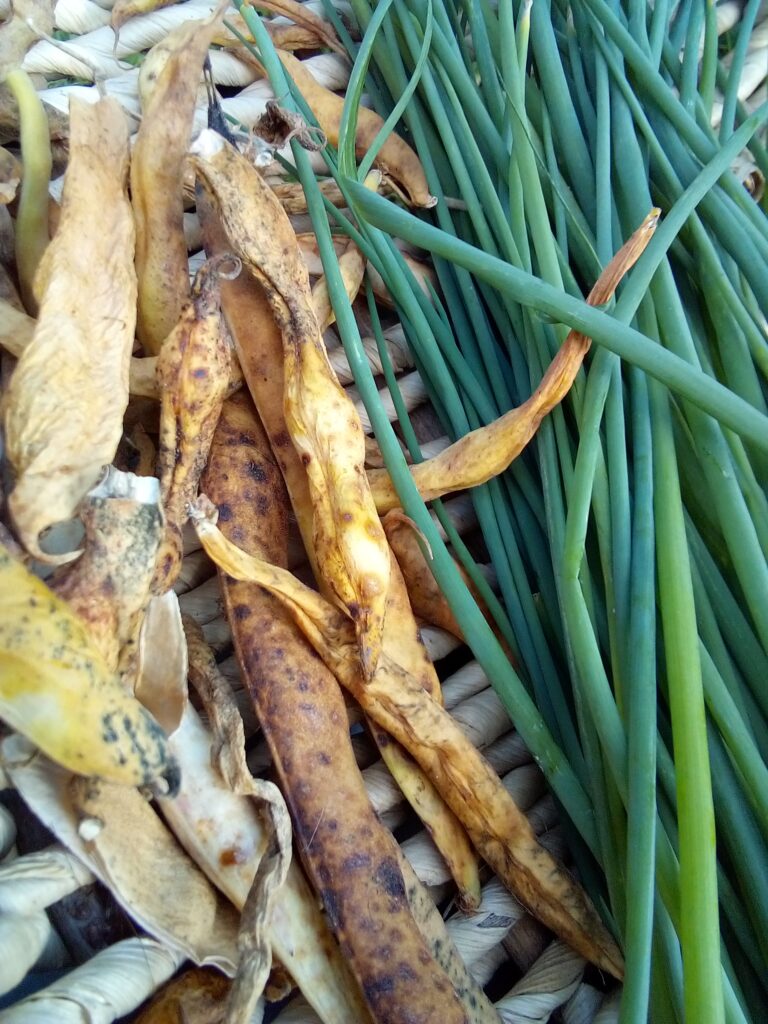
Why Open-Pollinated Seeds Belong in a Slow-Living Garden
These seeds carry memory — not only of the plant, but of you, the gardener.
They invite patience, generosity, and continuity. Each seed you save becomes part of your story in this new soil.
Frida’s voice still echoes:
“A seed that remembers its mother never forgets to bloom.”
So next time you browse Amazon.de, skip the hybrids — choose seeds that remember.
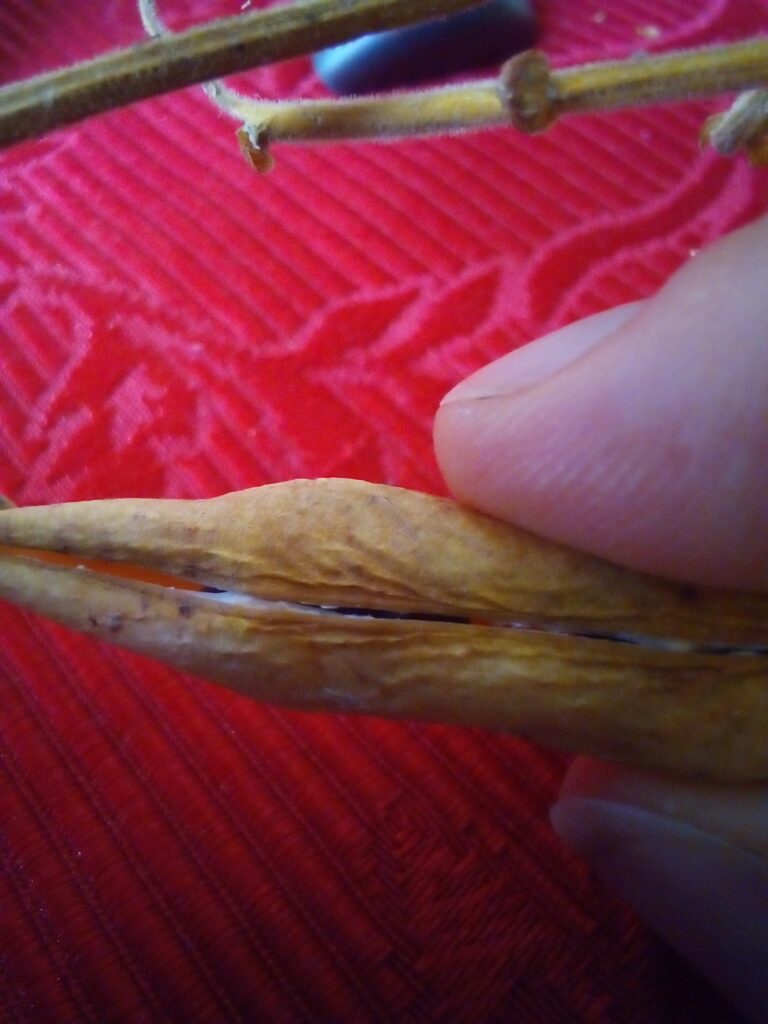
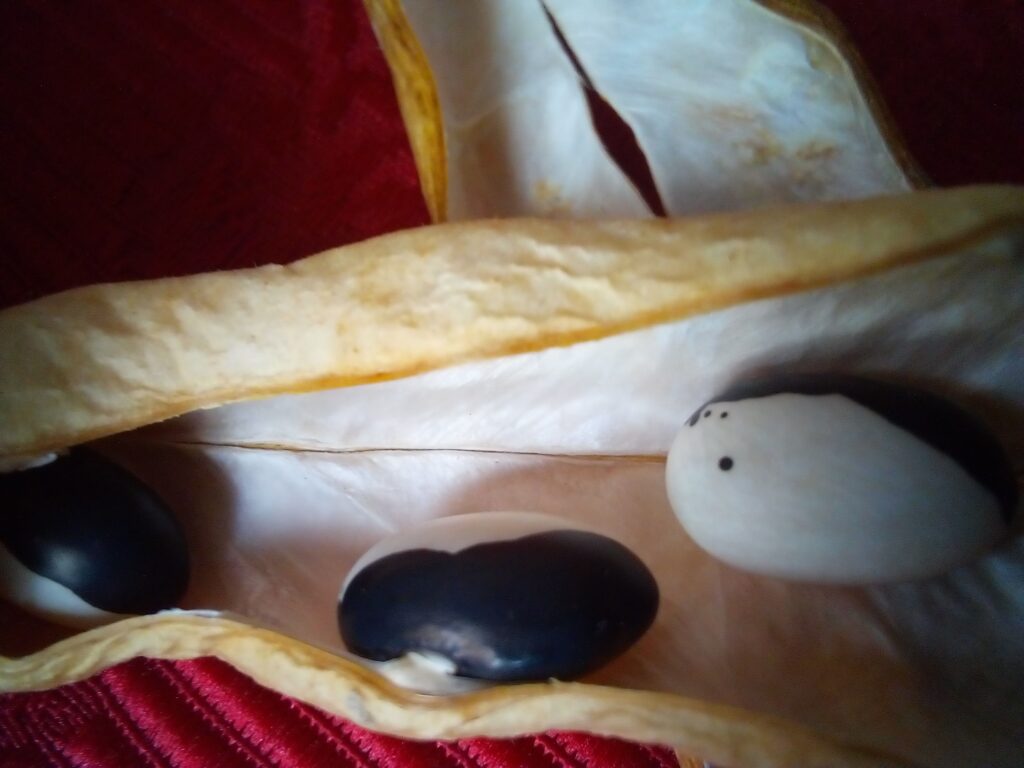
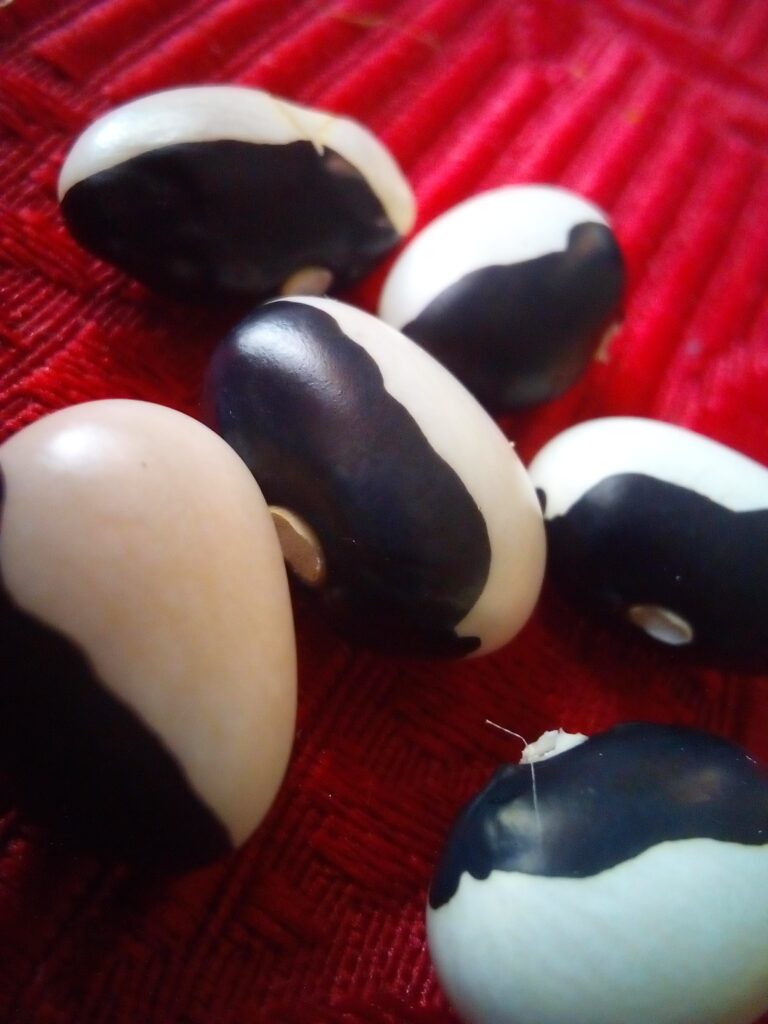
Why I Write About Open-Pollinated Seeds Germany — and What These Samenfest Seeds Taught Me
I write about open-pollinated seeds Germany not because it’s trendy, but because it changed how I see time, patience, and belonging. Each samenfest seed carries memory — of soil, of care, of seasons that taught me to slow down. That’s why I started sharing my journey on Healing Harvest Log — to remind anyone who plants, even on a small balcony, that growth is not about control. It’s about relationship.
- If you want to understand the heart behind it, read my story here: Why I Choose Open-Pollinated Seeds — the post where it all began.
- And if this is your first season of growing in Germany, start simple with my
Beginner Gardening Guide — it’s a quiet, practical invitation to begin your own rhythm of care, one seed at a time.
FAQ
What makes open-pollinated seeds Germany different from hybrid seeds?
Open-pollinated seeds (in German, samenfest) are natural varieties that you can save and replant every season. They’re ideal for anyone who values sustainability, seed heritage, and a slower, more mindful way of gardening. I wrote a full story about why I switched to them here: Why Choose Open-Pollinated Seeds.
Where can I buy open-pollinated seeds Germany online?
Yes! Many local German seed producers now sell directly through Amazon.de. I personally recommend Bingenheimer Saatgut and Magic Garden Seeds — both offer samenfest (open-pollinated) and organic varieties that adapt beautifully to German gardens and balconies.
Why are open-pollinated seeds Germany better for sustainability?
They’re biodiversity-friendly, non-GMO, and fully recyclable in nature’s rhythm. Learn more in my story: Why Choose Open-Pollinated Seeds.
I’m new to gardening in Germany — where should I start?
Start simple and local. Germany’s growing zones (roughly 7–8) are perfect for herbs, greens, and tomatoes. My Beginner Gardening Guide walks you through setting up your first small garden — even if you only have a balcony and a few hours a week. It’s all about finding rhythm, not perfection.
What’s the best seed set for beginners living in apartments?
Start simple and local. Germany’s growing zones (roughly 7–8) are perfect for herbs, greens, and tomatoes. My Beginner Gardening Guide walks you through setting up your first small garden — even if you only have a balcony and a few hours a week. It’s all about finding rhythm, not perfection.
What’s the best seed set for beginners living in apartments?
If you’re short on space, go for the OwnGrown Bio Herb Set — a compact, organic mix of basil, parsley, and dill that grows happily on any windowsill.
And if you want something for the bees (and your heart), I love the Little Plants Bee Meadow Mix — it turns even a small balcony into a pollinator’s paradise.
